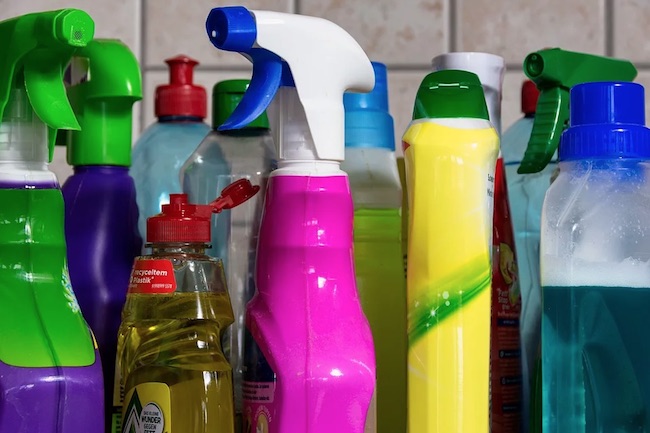Researchers Sound Alarm About Harmful Chemicals In Common Disinfectants By Casey Crownhart for Natural Blaze
Disinfectant use has exploded during the coronavirus pandemic as people try to keep their hands and surfaces clean. But one family of cleaning chemicals is receiving scrutiny for potential health concerns.
Quats, or quaternary ammonium compounds, are charged molecules that can kill bacteria, fungi and viruses. Quats are effective disinfectants, but some researchers are raising alarm given recent research on the compounds’ possible human health and environmental effects, including fertility issues, endocrine disruption, occupational asthma, marine toxicity and potential to spur antibiotic-resistant bacteria.
And, while industry defends quats as safe, some states are taking notice and looking into regulations.
Bacterial resistance
The pandemic has increased demand for products like Lysol wipes that use quats as active ingredients: Sales of Lysol wipes were up nearly 50% in spring of 2020 compared to 2019. Other cleaning products are also in high demand — aerosol disinfectant sales as a whole have doubled in 2020 in the U.S., a large fraction of which also contain quats.
All those additional sales mean quats are becoming more present in the environment. “We’re in an era now where the concentration [of quats] is certainly higher than ever before,” William Arnold, an environmental engineer at the University of Minnesota, told Environmental Health News (EHN). He published a paper in June that revealed an increased load of quats may be ending up in wastewater plants, with some worrisome implications. Quats can end up in wastewater plants after they’re flushed down the drain — at the levels of use during the pandemic, some plants can’t keep up, so quats have the potential to pollute waterways. There, they might disrupt marine food chains, as quats have been found to be toxic to small invertebrates like plankton in lakes.
The ingredients also may be spurring antibiotic-resistant germs, Arnold said.
Bacteria are constantly working to shore up their defenses against the antiseptics we use. “We’ve had an 80- or 90-year head start, but we really need to keep innovating” to stay ahead of microbial evolution, Kevin Minbiole, a Villanova University chemist who studies how quats affect bacteria and viruses, told EHN.




